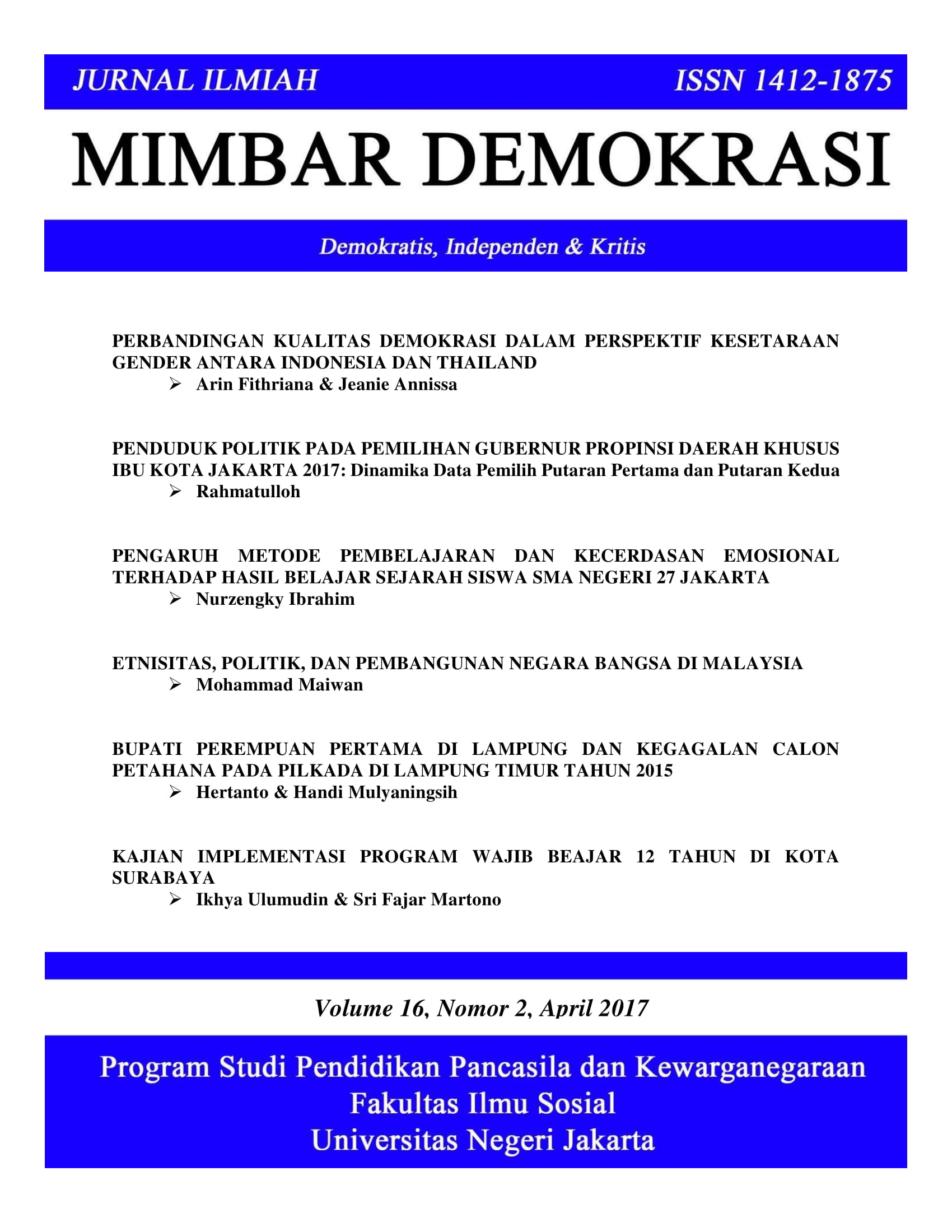KAJIAN IMPLEMENTASI PROGRAM WAJIB BELAJAR 12 TAHUN DI KOTA SURABAYA
DOI:
https://doi.org/10.21009/jimd.v16i2.8758Keywords:
Compulsory, education, BOPDA, operationalAbstract
This study aims to find out the strategy applied by Surabaya city in implementing the 12-year compulsory education program and the funding of school operational cost of secondary education. The approach used was both qualitative and quantitative with data and information gathered from interviews, Focus Group Discussion (FGD), and survey form. It can be concluded that the first strategy done by Surabaya city in supporting 12-year compulsory education was preparing a regulation support through a local government’s (including the mayor’s) laws and regulations, which mandate about educational financing. This educational budget is used in improving students’ participation and competence, improving schools’ infrastructure and facility, and improving educators and educational staffs’ competence and welfare. The only sources of school operational cost funding for public secondary schools in Surabaya are the BOS grant from central government and BOPDA grant from local government, whereas for private schools, there is also support from the community in the form of committee contribution. The 12-year compulsory education program in Surabaya can be adopted as a best practice for other districts/cities who are implementing the program.








